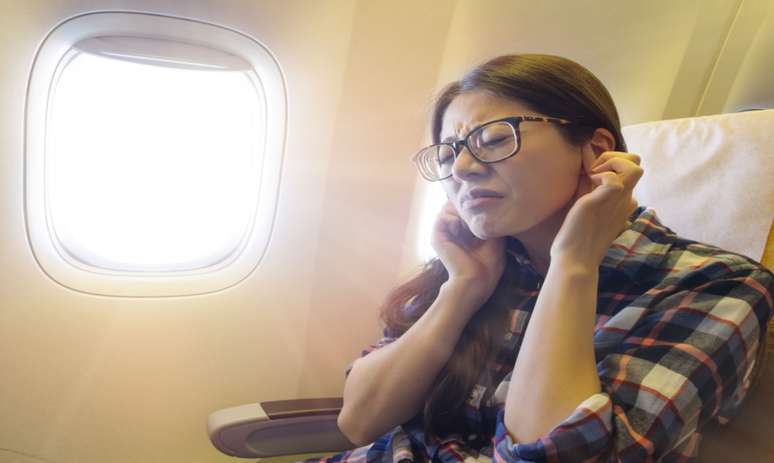During air travel, it is common to experience ear pain. Understand what causes the phenomenon and how to prevent it
Frequent flyers may be accustomed to the discomfort, which doesn’t make it any less uncomfortable. We are talking about the dreaded earache, so common during plane travel. But do you know why this happens?
According to speech therapist and audiologist Ariane Gonçalves, hearing specialist at the AudioFisa clinic and author of the book Uncomplicating Hearing Loss, ear pain during flights is a common complaint.
Discomfort may be the result of changes in air pressure inside and outside the ear during takeoffs and landings. “Understanding the causes of this discomfort, as well as strategies to prevent and address it, is essential to making air travel more comfortable,” he says.
Why do we feel ear pain during a flight?
According to her, during takeoffs and landings, rapid changes in air pressure around the ear occur. These changes can lead to temporary blockage of the Eustachian tube, a small canal that connects the back of the throat to the middle ear.
“When the Eustachian tube becomes blocked, the pressure inside the ear cannot adequately compensate for the pressure outside. This causes discomfort, a feeling of pressure, and sometimes pain,” he explains.
While not everyone experiences ear pain during flights, some may be more sensitive to these pressure changes, especially those who have underlying health conditions, such as ear infections or sinus problems, the expert says.
How to prevent inconveniences and travel more comfortably?
Ariane points out that there are several ways to prevent ear pain during flights. One technique is to swallow frequently during takeoffs and landings, which can help open the Eustachian tube and equalize the pressure inside the ear.
Additionally, chewing gum, yawning, or swallowing saliva may also help. But not only that: avoiding sleeping during descents and avoiding flying if you have a cold or congestion can help reduce the risk of ear pain.
The professional also recommends Valsalva maneuvers, which involve closing the mouth, holding the nose and blowing gently to equalize the pressure in the ear.
When the alert is triggered
“If discomfort persists for a long time after the flight or if you experience severe pain, significant hearing loss, bleeding or discharge from the ear, it is important to consult a doctor immediately. These symptoms may indicate a more serious problem, such as an ear infection or ruptured eardrum, which requires appropriate evaluation and treatment by a healthcare professional,” warns the speech-language pathologist and audiologist.
In short, ear pain during flights is a common but generally harmless problem. With a few simple precautions and pressure-relieving techniques, you can minimize discomfort and enjoy a smoother air ride. “However, it is essential to be aware of the warning signs and, if necessary, seek medical attention to ensure hearing health and well-being,” concludes the specialist.
Source: Terra
Ben Stock is a lifestyle journalist and author at Gossipify. He writes about topics such as health, wellness, travel, food and home decor. He provides practical advice and inspiration to improve well-being, keeps readers up to date with latest lifestyle news and trends, known for his engaging writing style, in-depth analysis and unique perspectives.









